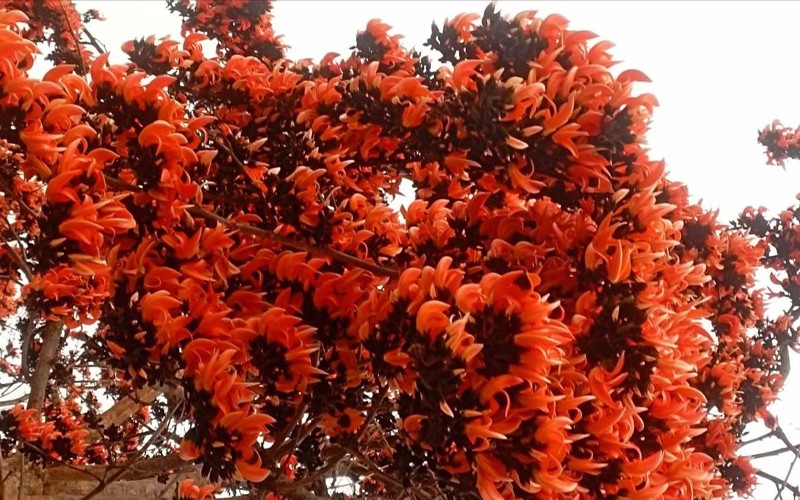
The silent cycle
Scientists are trying to grow vegetables in space as sending food with astronauts on a long haul is too expensive. Reminds me of Matt Demon's sci-fi film The Martian where he is stranded on a mission to Mars as fellow astronauts think he is dead and to survive, he experiments with growing potatoes, and they do fine- surprisingly. This is only speculative fiction, but fiction often comes to reality, if in some future date.
But my thoughts now are more grounded on the terra firma. In different corners of the world the war drums are rolling but nature goes on its cycle of journey silently- uncaringly. Like always, you notice the green shoots appearing on the winter-bare branches as soon as the wild wind of falgun makes an appearance. Soon the blue sky is framed by the blood-red flame of the forest and yellow acacias. In my front yard the golden champa tree’s blooms unfurl a net of heady smell.
You suddenly notice white blooms, Bengalis call them mukul, shyly appearing on the mango branches. In the backyard of my next-door neighbour I see jackfruits merrily hanging from the stalky branches; in fact, this year I notice even more of a luxurious cache than last year as if declaring, you guys go on fighting, I’ll do my job.
The cuckoos, the warblers all start their signature tunes in the morning to make a nice wake-up call. The market gets flooded with watermelons, musk melons and grapes in place of oranges of winter. Wood-apple sherbat quenches thirst better than all the fizzy drinks in the market; Bengal’s aam-pora sherbat is a class apart.
The thing is, it’s fascinating to observe this silent cycle repeating each year, nature producing the right products according to the weather and ambience which we almost take for granted. But see how disciplined mother nature is, doing the job according to the schedule. It’s only when we humans try to interfere, try to dominate and change the eternal cycle that nature strikes back – unseasonal floods, unprecedented heat waves even in salubrious climate-zones, et al. It’s a lesson to learn. But do we learn? That’s a million-dollar question.
Top Headlines
-
Random Thoughts
Keeping up to date
January 13, 2026
-
Random Thoughts
The silent cycle
May 12, 2025
-
Random Thoughts
Dead as a dodo?
September 30, 2024
-
Random Thoughts
Those who heal
August 22, 2024
-
Random Thoughts
Music does it
February 26, 2024
-
Random Thoughts
Talking...talking
December 15, 2023
-
Random Thoughts
The other side of happiness
October 18, 2023
-
Random Thoughts
Theatre of the absurd
June 07, 2023
-
Random Thoughts
Looking back with stars
January 19, 2023
-
Random Thoughts
Hope, despite everything
November 02, 2022
